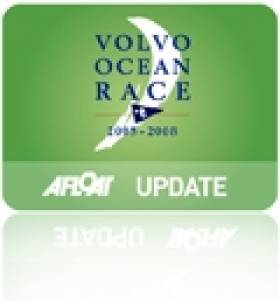Displaying items by tag: Recife
Volvo Ocean Race Returns to Brazil for 2014-15
#VOR - Organisers of the Volvo Ocean Race have announced that the Brazilian state of Pernambuco will enter a team in the next edition of the round-the-world offshore challenge in 2014-15.
In addition, its capital city of Recife will be the first stopover port along the race route, which starts in Alicante in the second half of next year.
The Recife team is only the second publicly announced team for the 12th edition of the VOR, following the SCA all-women's team announced last August.
Details about the stopover and the team, including the identity of the skipper, will be announced in the coming weeks.
“[The] announcement of the Pernambuco team and Recife stopover are fantastic news for the race,” said Volvo Ocean Race CEO Knut Frostad. “I’m delighted to see the Race strengthen our ties with Brazil, Recife and Pernambuco in this way.
"Coming to Recife at the end of Leg 1 means there will be a lot of attention on this great city and having a Brazilian team in the race will be fantastic for fans across the country."
The decision to make Leg 1 of the route from Alicante to Recife means the VOR will be visiting Brazil in one of the biggest sporting eras in the nation's history – just a few months after the country hosts the 2014 Fifa World Cup and less than two years before the Olympic Games in Rio.
Recife was one of over 80 ports to express an interest in hosting the race when the bid process was launched in 2012. The deal announced yesterday will see Recife host the race for the next two editions.
The last Brazilian team to enter the Volvo Ocean Race was Brasil 1 in 2005-06. Torben Grael was the skipper and Knut Frostad, now the Volvo Ocean Race's CEO, featured as a crew member on some of the legs. The Brazilian campaign proved to be a big success and generated great interest worldwide and in the media. Grael went on to win the Volvo Ocean Race as skipper of Ericsson 4 in 2008-09.
The Volvo Ocean Race's links with Brazil date back to 1973, when the first edition of what was then known as the Whitbread Round the World Race stopped at Rio de Janeiro.
The race also visited Rio in the second edition in 1977-78 and again in 2001-02, 2005-06 and 2008-09. In 1997-98 the race stopped at São Sebastião and in the last edition in 2011-12, Itajaí was a host port.
Meanwhile, Team SCA have unveiled the livery for their VOR 65 new design when it is launched and ready to race later this year.
As previously reported on Afloat.ie, the new design VOR 65 - priced at €4.5 million, about 20% less expensive than the 70-footer that ended its run in Galway last summer - was developed with the idea of reducing the costs of competing in the gruelling round-the-world yacht race.
The official VOR website has images of the SCA livery, with nature-inspired graphics and colours designed to reflect the eco-friendly values of the title sponsor, global hygiene company SCA.
At the beginning of February, a number of Team SCA women crew candidates will leave Southampton on a first test sail together with several leading off-shore coaches.
Team SCA have not yet revealed the identity of any of the crew, including the skipper.





























































